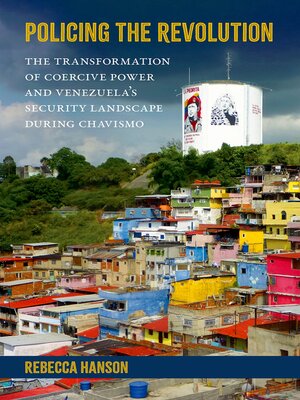Policing the Revolution
ebook ∣ The Transformation of Coercive Power and Venezuela's Security Landscape During Chavismo · Global and Comparative Ethnography
By Rebecca Hanson

Sign up to save your library
With an OverDrive account, you can save your favorite libraries for at-a-glance information about availability. Find out more about OverDrive accounts.
Find this title in Libby, the library reading app by OverDrive.



Search for a digital library with this title
Title found at these libraries:
| Library Name | Distance |
|---|---|
| Loading... |
Since the mid-2000s Venezuela has been ranked one of the most violent countries in the world as homicides and police violence skyrocketed. Much has been written about the country's turn to Chavismo but scholarship has ignored what will perhaps be the revolution's most important legacy: how Chavista policies transformed coercive power and the security landscape. In Policing the Revolution, Rebecca Hanson provides the first in-depth analysis of policing and security policies during the Bolivarian Revolution in Venezuela, focusing on the experiences of three groups: police officers, police reformers, and residents of neighborhoods most affected by violence. Drawing on ethnographic, interview, and survey research collected over ten years, she analyzes how security policies within the context of the pink tide and later turn to authoritarianism contributed to the expansion of lateral violence and the pluralization of non-state armed actors. Far from the always-already authoritarian project proposed by many scholars and pundits, Hanson shows that the Bolivarian Revolution was defined by highly contested and contrasting visions of security that resulted in a fragmented and inconsistent ordering of state and society. Moreover, by pairing the vantage point of street-level police officers with that of ordinary barrio residents, she provides a unique analysis of how insecurity during revolution was experienced "from below." Rethinking the relationship between revolution, violence, and state-building, this book is essential reading to understand how and why violence increased so dramatically in Venezuela in the twenty-first century.







